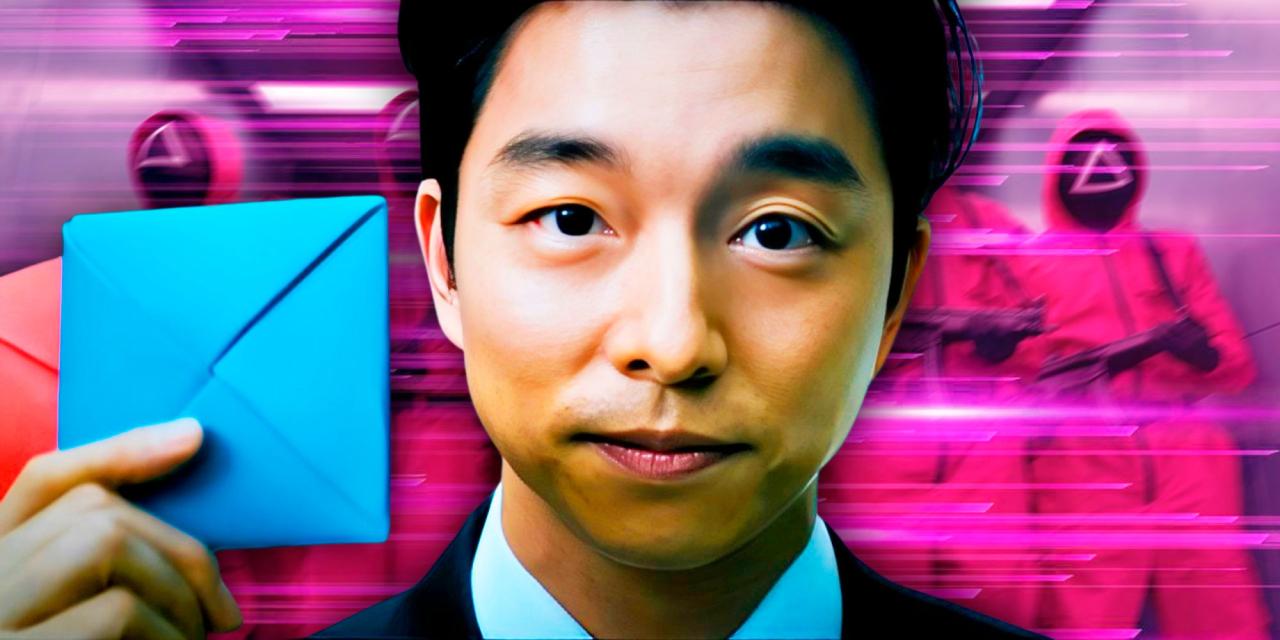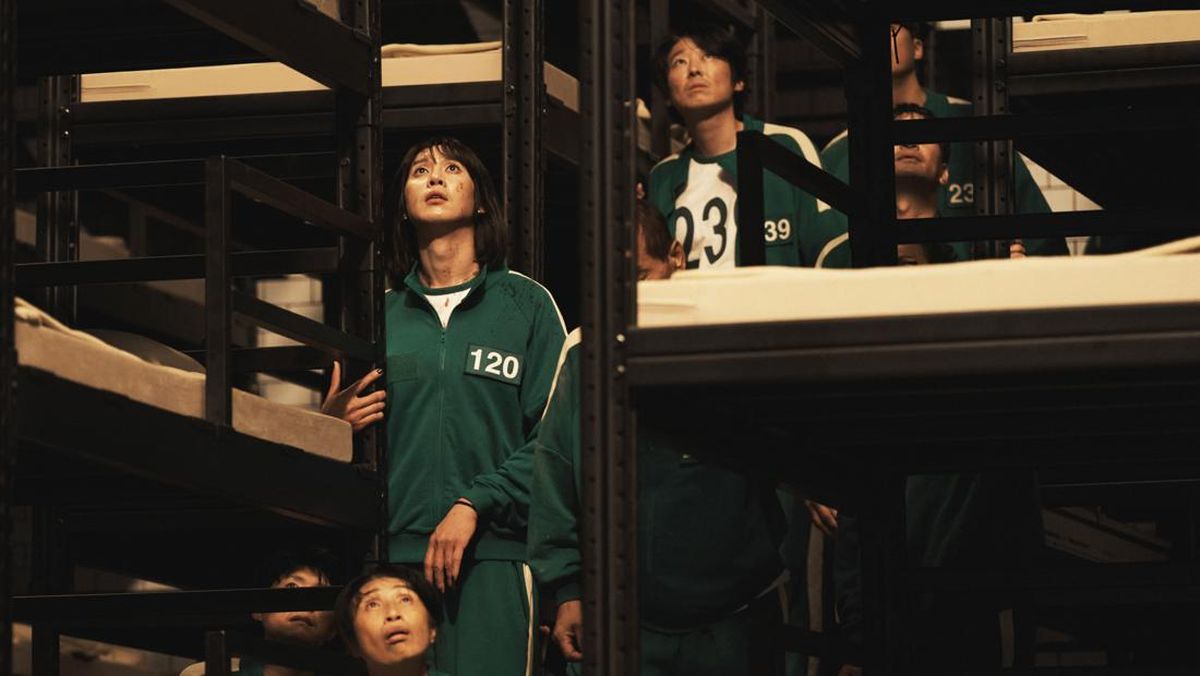Squid Game Histoire Vraie? The wildly popular Netflix series, Squid Game, captivated audiences worldwide with its brutal depiction of desperate individuals competing for life-changing money. But how much of this hyper-violent spectacle reflects the realities of South Korean society? This exploration delves into the socio-economic pressures, intense competition, and societal anxieties that resonate with the show’s themes, examining whether the show’s extreme scenarios are a twisted reflection of real-life struggles or a purely fictional construct.
We’ll dissect the show’s portrayal of crippling debt, the cutthroat nature of South Korean society, and the inspiration behind its deadly games. By comparing the show’s exaggerated scenarios to actual societal issues in South Korea, we aim to determine how much of Squid Game’s dark vision is rooted in truth and how much is heightened for dramatic effect. We’ll also look at the show’s global impact and its contribution to conversations about economic inequality and social pressure.
The Reality Behind Squid Game: A Look at South Korean Society
Netflix’s “Squid Game” captivated audiences worldwide with its brutal depiction of debt-ridden individuals competing in deadly children’s games. While fictional, the show reflects stark realities of South Korean society, highlighting issues of crippling debt, intense social competition, and the desperation for survival. This article delves into the socio-economic factors that make the show’s premise, while extreme, disturbingly relatable to some South Koreans.
High Personal Debt in South Korea
South Korea’s high levels of household debt are a complex issue stemming from a confluence of factors. The pressure to succeed academically and professionally, coupled with a highly competitive job market, often leads individuals to take on significant debt for education, housing, and business ventures. Furthermore, readily available credit and, in some cases, predatory lending practices contribute to the problem.
This creates a vicious cycle where individuals struggle to repay loans, leading to further borrowing and a deepening financial crisis.
Debt in “Squid Game” vs. Reality

In “Squid Game,” debt serves as the primary motivator for participation in the deadly games. While the extreme circumstances are fictional, the desperation portrayed resonates with the struggles of many South Koreans burdened by debt. The show amplifies the feeling of being trapped in a system that offers little escape, mirroring the real-life anxieties faced by those drowning in debt.
Many individuals in South Korea feel similarly pressured, leading to severe mental health issues and societal consequences.
So, you’re wondering about “Squid Game histoire vraie”? While the show’s fictional, the desperation it portrays sadly reflects real-world struggles. Think about the ingenuity needed to survive such a situation, similar to the clever tactics used with the ukrainian sea drone in the current conflict. This kind of resourcefulness, born of necessity, is a chilling parallel to the games in Squid Game, highlighting the lengths people will go to for survival.
Predatory Lending and Vulnerable Populations, Squid game histoire vraie
The impact of predatory lending practices on vulnerable populations in South Korea is a significant concern. High-interest loans and deceptive lending practices target individuals with limited financial literacy or those facing financial hardship. This exacerbates existing inequalities and traps individuals in a cycle of debt. Government regulations are attempting to address these practices, but the problem persists.
Government Initiatives to Address Personal Debt
The South Korean government has implemented several initiatives to tackle the issue of personal debt, including debt restructuring programs, financial literacy campaigns, and stricter regulations on lending practices. However, the effectiveness of these measures is still debated, and the problem remains a significant challenge for the country.
Korean Social Hierarchy and Competition: Squid Game Histoire Vraie
South Korean society is characterized by a highly competitive environment, influenced by Confucian values emphasizing education, social status, and achievement. This intense competition permeates various aspects of life, from education to employment, creating immense pressure on individuals to succeed.
Social Status and Individual Experiences
Social status and class play a significant role in shaping individual experiences in South Korea. Access to opportunities, resources, and social networks are often determined by one’s social standing, creating a system of stratification that can be difficult to overcome. This creates a hierarchy where upward mobility is challenging and downward mobility is deeply stigmatized.
“Squid Game’s” Depiction of Social Hierarchy
The show accurately reflects the intense pressure to succeed and the social stratification prevalent in South Korean society. The games themselves can be seen as a metaphor for the cutthroat competition and the unequal playing field many South Koreans face in their daily lives. The characters’ backgrounds highlight the disparities in access to resources and opportunities.
Real-Life Examples of Intense Pressure to Succeed
The pressure to excel academically is immense, leading to a highly competitive education system with long hours of studying and intense pressure to achieve high scores on standardized tests. The job market is equally competitive, with many young people facing unemployment or underemployment despite possessing high levels of education. This pressure often manifests in mental health struggles and societal anxieties.
The Games: Inspiration and Reality
While the games in “Squid Game” are fictional, some aspects might draw inspiration from traditional Korean children’s games or competitive elements within Korean culture. The symbolic meaning of the games within the context of South Korean society is multifaceted, representing themes of survival, competition, and the desperation born from societal pressures.
Comparison of Games
| Squid Game Game | Similar Korean Game/Activity | Description | Symbolic Meaning |
|---|---|---|---|
| Red Light, Green Light | Traditional Korean children’s game | Players must freeze when the light turns red and run when it turns green. | Represents the strict rules and consequences of societal expectations. |
| Honeycomb Candy | Traditional Korean snack | Players must carefully carve shapes out of a honeycomb candy without breaking it. | Symbolizes the fragility of life and the delicate balance between success and failure. |
| Tug-of-War | Traditional Korean game | Two teams pull a rope, attempting to pull the other team across a line. | Represents the competition and struggle for survival in a cutthroat society. |
| Marbles | Traditional Korean children’s game | Players bet marbles against each other, testing their skills and luck. | Symbolizes the risks and uncertainties of life, and the desperation to gain an advantage. |
The Depiction of Violence and Survival
The graphic violence in “Squid Game” is a central element of the show, highlighting the desperation and brutality of the games. While the level of violence depicted is far more extreme than what is typically seen in South Korean society, the themes of survival and desperation resonate with real-life situations where individuals face extreme circumstances.
Violence in “Squid Game” and South Korean Society

While the show’s violence is exaggerated for dramatic effect, it reflects a societal anxiety around competition and the lengths people might go to in order to survive. The underlying theme of desperation and the willingness to compromise morals for survival is something that resonates with the pressures many feel in a highly competitive society.
So you’re wondering about “Squid Game histoire vraie”? While the show’s fictional, its themes of desperation and inequality resonate with real-world issues. Many are curious about potential future seasons, and some speculate about the possibility of a “VIP” class influencing the games, like you might find discussed on sites dedicated to fan theories, such as this one covering vip 3 squid game.
Ultimately, though, the core question of “Squid Game histoire vraie” remains – how much of the show’s harsh reality reflects our own?
Real-Life Situations of Extreme Survival

Many South Koreans face extreme financial hardship and pressure to succeed, leading to mental health crises and sometimes desperate measures. While not to the same level of violence as in the show, the underlying themes of desperation and survival are relatable to some individuals facing extreme circumstances in their daily lives.
Ethical Dilemmas Presented by the Games
- The dehumanization of participants and the disregard for human life.
- The exploitation of vulnerable individuals driven by desperation.
- The moral ambiguity of survival at any cost.
- The systemic issues that create the conditions for such extreme competition.
The Show’s Impact and Global Reception

“Squid Game” achieved phenomenal global success, sparking widespread discussions about social and economic inequalities. Its impact extends beyond entertainment, prompting critical conversations about societal issues and the human cost of unchecked competition.
Timeline of Success and Cultural Influence
The show’s rapid rise to global popularity can be tracked through its record-breaking viewership numbers on Netflix, its numerous awards and nominations, and its significant impact on social media trends and popular culture. Its influence is evident in the numerous parodies, merchandise, and discussions it generated worldwide. The show’s cultural impact continues to evolve and will be a subject of study for years to come.
Contribution to Discussions of Inequality
“Squid Game” effectively highlighted the struggles faced by those marginalized in society due to economic hardship and social inequalities. The show’s global reach sparked conversations about the need for social safety nets, debt relief, and addressing systemic issues that contribute to such disparities.
Influence on Worldwide Societal Discussions
The show’s success led to increased awareness and discussions about wealth inequality, predatory lending, and the pressures of a hyper-competitive society. This spurred conversations on potential solutions and policy changes to address these systemic issues globally, not just in South Korea.
Visual Representation of Key Themes
The visual style of “Squid Game” plays a crucial role in enhancing the storytelling and conveying key themes. The show’s distinct color palette, set design, and cinematography contribute significantly to its impact.
Use of Color and Setting
The vibrant colors of the games contrast sharply with the bleak reality of the participants’ lives, highlighting the stark juxtaposition between the artificial world of the games and the harsh realities of their everyday existence. The use of specific colors, such as the bright pink of the guards’ uniforms, adds to the unsettling atmosphere and contributes to the show’s overall visual impact.
Key Scene Analysis
The final game of marbles between Gi-hun and Sang-woo is a powerful example of the show’s visual storytelling. The close-up shots of their faces reveal their inner turmoil and desperation. The stark lighting and the use of silence emphasize the emotional weight of their choices. The setting of a dimly lit, claustrophobic space further enhances the feeling of tension and hopelessness.
The contrast between the simple game and the high stakes underscore the desperation of their situation and the broader themes of survival and betrayal.
So, you’re curious about “Squid Game histoire vraie”? While the show’s fictional, the harsh realities of debt and societal inequality it depicts are sadly real. Think about the pressure – it’s like the pressure on a team like Gonzaga’s basketball players, constantly striving for victory, as seen in their travel arrangements, maybe even on a gonzaga basketball plane.
That kind of intense focus and high stakes mirrors the desperation in Squid Game, making the show’s impact even more profound. The show forces us to consider the systems that create such extreme situations.
Closing Notes
While Squid Game undeniably presents a heightened and fictionalized version of reality, its enduring popularity stems from its unsettling ability to tap into very real anxieties. The show’s exploration of debt, social hierarchy, and the pressure to succeed resonates deeply with viewers worldwide, highlighting the darker aspects of a highly competitive society. Ultimately, Squid Game Histoire Vraie serves as a cautionary tale, prompting reflection on the societal pressures that can drive individuals to desperate measures, even if the games themselves remain firmly in the realm of fiction.
FAQ Resource
Was
-Squid Game* based on a true story?
No,
-Squid Game* is not based on a single true story. However, its themes of debt, social inequality, and competition are inspired by real-life issues prevalent in South Korea and other parts of the world.
Are the games in
-Squid Game* based on real Korean games?
Some of the games’ simpler mechanics might draw inspiration from childhood games, but the deadly, high-stakes versions are purely fictional.
How accurate is the portrayal of debt in South Korea in
-Squid Game*?
While the show exaggerates the severity for dramatic effect, South Korea does have a significant problem with personal debt, particularly among vulnerable populations.
What is the significance of the colors used in
-Squid Game*?
The vibrant colors, particularly the contrasting use of bright and muted tones, are used to create a stark visual juxtaposition between the childlike games and the brutal reality of the competition.
